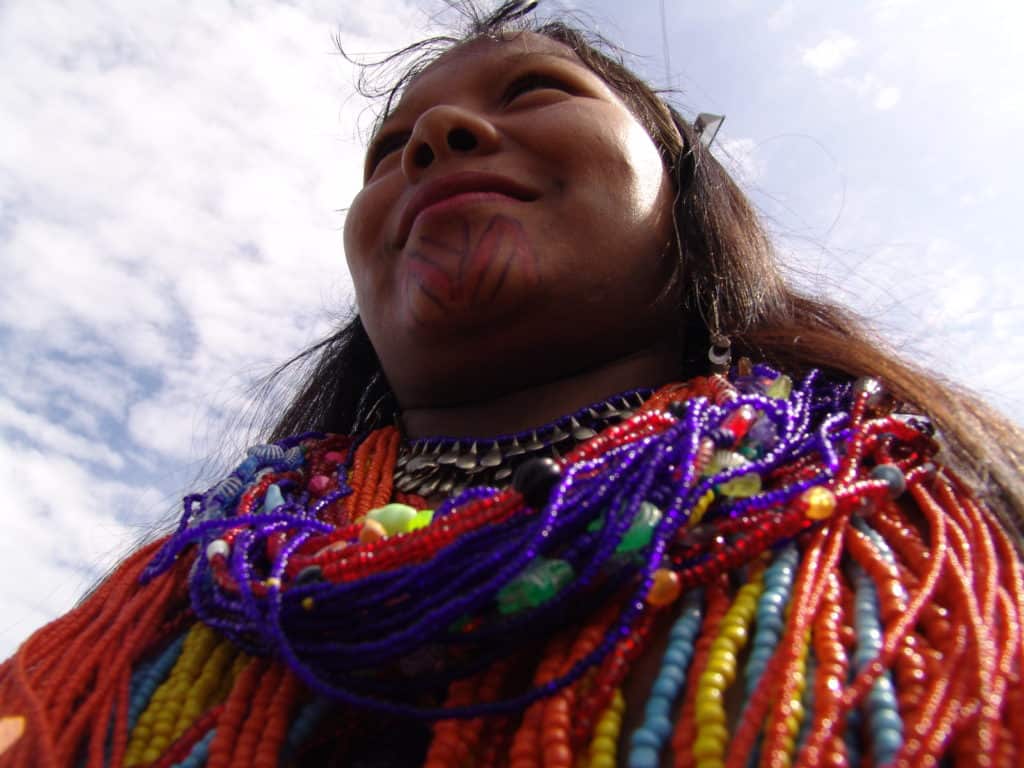On 10 August 2019 the Office of the High Commissioner for Human Rights in Colombia (OHCHR), in a public statement, announced that two Indigenous Guards had been killed in the last 24 hours. It called on the Colombian State to provide adequate prevention and protection measures for the Nasa Indigenous Peoples (the Cxhab Wala Kiwe) in the North of Cauca (Norte del Cauca) and to guarantee their physical and cultural survival.

According to the OHCHR, between 1 January and 10 August 2019, it had received information on the killing of 36 members of the Nasa Indigenous Peoples in the north of Cauca. Two of which, were killed this week, on 9 August 2019. In addition to this, there have been approximately 53 death threats, and 8 attacks.
Alberto Brunori describes it as “a decidedly alarming situation.”
This profoundly concerning situation led the OHCHR to urge the State to fulfill its commitments to the NASA Indigenous Peoples and comply fully with the order of the Colombian Constitutional Court T-030 of 2016. By providing effective protection and prevention measures in consultation with the Nasa Indigenous Peoples, in order to guarantee the life and cultural integrity of the members of the Nasa People.
The OHCHR, went on to expressed deep concern over the repeated attacks against the Nasa in north of Cauca. Pointing out that in one 24-hour period alone, there had been two attacks against the Indigenous Guard. One of these attacks resulted in the violent death of two Indigenous Guards.
The Indigenous Guard is a body recognised by the State and in the Peace Accord, as providing security and protection for indigenous communities.
Unfortunately this is not a new situation, last year (2018) in the same period of time, 27 Indigenous Peoples were killed. What is “decidedly alarming“ is that in 2019, the number killed during this same period of time, increased by nine to 36 Nasa Indigenous Peoples killed.
“I strongly condemn the attacks against the Indigenous Guard, as well as the killings of the traditional doctor, the Wala, Enrique Güejia, of Tacueyó, and the coordinator of the indigenous guard, Toribío Gersain Yatacué, … These violent deaths not only impact the organizational structure and the ancestral own government, but they have an enormous cultural dimension …” (unofficial translation) [1]
Alberto Brunori, Representative in Colombia of the UN High Commissioner for Human Rights.
The OHCHR also highlighted how the Nasa had been stigmatised, and drew attention to discriminatory messages against them. Both of which increase their vulnerability. The OHCHR also, highlighted the importance of State authorities, civil society and the media issuing clear messages of recognition of the rights of Indigenous Peoples.
Recommendations:
ABColombia joins with the OHCHR in recommending that the Colombian Authorities in coordination with the Special Indigenous Jurisdiction they adopt the appropriate judicial measures, quickly investigate the killings of the indigenous Peoples and prosecute those responsible for crimes against the Nasa People, including the investigation of possible omissions and collusion that might have favoured these crimes.
References:
[1] Full quote in Spanish: “Condeno con firmeza los ataques en contra de la Guardia Indígena, al igual que los homicidios del médico tradicional, the wala, Enrique Güejia, de Tacueyó, y del coordinador de la guardia indígena de Toribío Gersain Yatacué, quienes fueron asesinados en los últimos días. Estas muertes violentas no solo impactan la estructura organizativa y el gobierno propio ancestral, sino que tienen una dimensión y afectación cultural enorme”, dijo Alberto Brunori, Representante en Colombia de la Alta Comisionada de la ONU para los Derechos Humanos.
Notes:
- According to the information collected by the OHCHR, 46 homicides were filed in indigenous territories in northern Cauca in 2018. Of this number of people killed, 26 belonged to one of the 21 communities; 7 of them belonged directly to the indigenous human rights movement: 1 teacher; 1 indigenous leader; 1 former ACIN Councillor; 1 traditional authority; 2 indigenous guards, 2 people “Liberators of Mother Earth”.
- In a meeting on 9 July 2019 the Interior Ministry publicly reiterated its support for human rights defenders and highlighted that it was working on the design of a policy entitled “Respect and Guarantee Policy” for the work of HRDs (la Política de Respeto y Garantía de su labor).
- The Office recalls that Judgment T-030 of 2016 of the Constitutional Court, in accordance with international human rights standards, orders the State that the measures to be adopted in matters of protection and prevention should be agreed with the authorities of the Nasa People of the North of Cauca and its organizational processes, within the framework of the right to autonomy and the ancestral own government.
- Due to the high level of security risks faced by the NASA Indigenous Peoples the Inter-American System of Human Rights issued Special Protection measures (Precautionary Measures) in favour of nine leaders of the Cxhab Wala Kiwe-Association of Indigenous Cabildos in the north of Cauca.
Further reading
